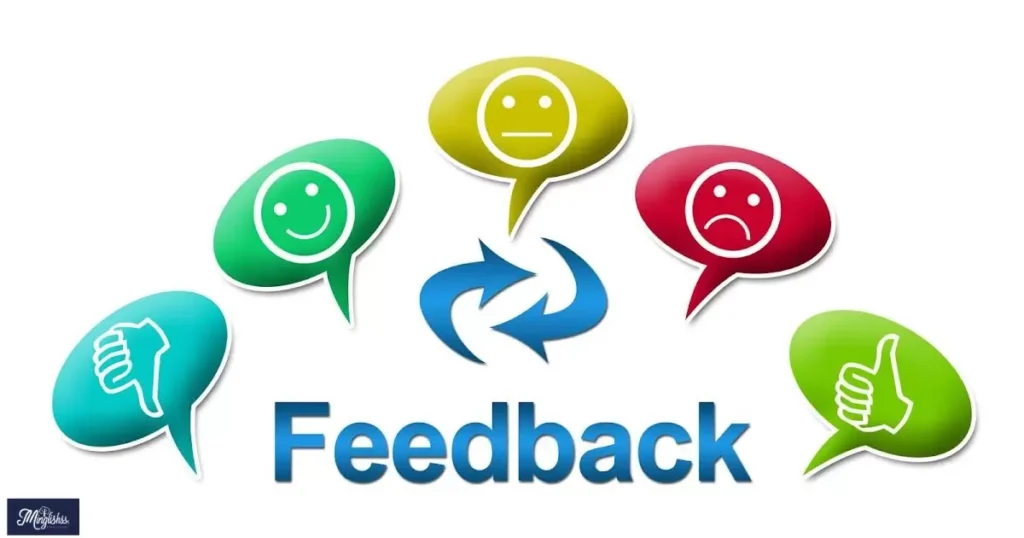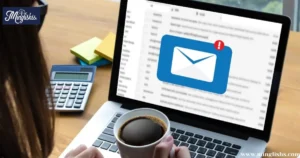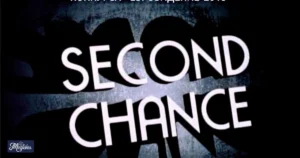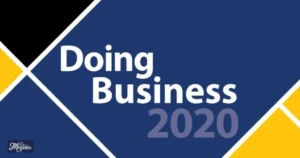“Elevate your appreciation with these refined expressions of gratitude.”
Expressing gratitude in a professional setting is essential for maintaining positive relationships and fostering a supportive work environment. Whether acknowledging a colleague’s hard work, a client’s trust, or a team’s dedication, how you convey your thanks can significantly impact the perception and strength of your professional relationships. Using polished and thoughtful expressions of gratitude can enhance your communication and leave a lasting positive impression.
In this blog, we will explore various professional ways to express gratitude. From formal acknowledgments to personalized thank-yous, you’ll learn how to appropriately convey your appreciation in different business contexts. By mastering these expressions, you can show genuine thanks while upholding professionalism.
Understanding how to effectively express gratitude is crucial in any business setting. It not only acknowledges the efforts of others but also strengthens relationships and fosters a positive working environment. This guide will help you choose the right words to express your thanks with professionalism and sincerity.
25 Professional Ways to Express Gratitude
1. “Thank you for your invaluable contribution.”
Scenario: Sarah thanks her team for their critical input on a project.
Explanation: This phrase highlights the significant value of the recipient’s contribution, showing that their effort is greatly appreciated.
Additional Tip: Use this expression when acknowledging substantial or crucial contributions to a project or task.
2. “I greatly appreciate your support.”
Scenario: John expresses his appreciation to a colleague who helped him meet a tight deadline.
Explanation: Acknowledges the recipient’s support in a sincere and professional manner, emphasizing the importance of their help.
Additional Tip: Ideal for situations where ongoing or significant support has been provided.
3. “Your assistance has been invaluable.”
Scenario: Emily thanks her assistant for their help in organizing a major event.
Explanation: This phrase emphasizes that the recipient’s assistance was crucial and made a significant difference.
Additional Tip: Use this when you want to convey that the help received was not just useful but essential.
4. “Thank you for your dedication and hard work.”
Scenario: Michael expresses his gratitude to his team after a successful project completion.
Explanation: Acknowledges both the effort and commitment put in by the team, highlighting their hard work and dedication.
Additional Tip: Suitable for recognizing team efforts and individual contributions that involve significant dedication.
5. “I am grateful for your timely response.”
Scenario: Laura thanks a client for their prompt reply to an important query.
Explanation: This phrase shows appreciation for the speed of the recipient’s response, highlighting its importance to the situation.
Additional Tip: Use this when the timing of the recipient’s response was crucial to the outcome of the situation.
6. “Thank you for your prompt attention to this matter.”
Scenario: James thanks a colleague for addressing an urgent issue quickly.
Explanation: A formal way to express gratitude for the speed with which the recipient handled a matter.
Additional Tip: Ideal for formal settings where the promptness of the recipient’s actions was critical.
7. “Your efforts are deeply appreciated.”
Scenario: Olivia expresses her gratitude to a team member who went above and beyond.
Explanation: Conveys a deep level of appreciation for the recipient’s extra efforts and hard work.
Additional Tip: Best used when recognizing exceptional effort and dedication.
8. “I would like to extend my sincere thanks.”
Scenario: Ethan thanks a partner organization for their collaboration on a successful project.
Explanation: A formal and sincere way to convey gratitude, suitable for professional correspondence.
Additional Tip: Use this phrase when a formal acknowledgment of thanks is appropriate.
9. “Thank you for your continued support and partnership.”
Scenario: Rebecca thanks a client for their ongoing business relationship.
Explanation: Acknowledges the recipient’s ongoing support and partnership, emphasizing long-term appreciation.
Additional Tip: Ideal for expressing thanks to clients or partners with whom you have an ongoing relationship.
10. “I appreciate your feedback and insights.”

Scenario: Daniel thanks a colleague for providing valuable feedback on a report.
Explanation: Shows gratitude for constructive feedback and acknowledges its value to the process.
Additional Tip: Use this phrase when you want to recognize and appreciate the value of feedback or advice received.
11. “Thank you for going the extra mile.”
Scenario: Chloe thanks a team member who put in extra effort to ensure the success of a project.
Explanation: Recognizes and appreciates the extra effort beyond what was expected.
Additional Tip: Suitable for acknowledging exceptional efforts and going above and beyond standard expectations.
12. “Your support has been a great help.”
Scenario: Noah expresses gratitude to a colleague for their assistance during a busy period.
Explanation: Conveys that the recipient’s support was beneficial and appreciated.
Additional Tip: Use this when acknowledging help that significantly eased a challenging situation.
13. “Thank you for your professionalism and expertise.”
Scenario: Emma thanks a consultant for their expert advice and professional approach.
Explanation: Acknowledges the recipient’s professional skills and approach, highlighting their contribution.
Additional Tip: Ideal for recognizing the professionalism and expertise of external consultants or advisors.
14. “I am thankful for your commitment to this project.”
Scenario: Liam thanks a team member for their consistent effort and commitment to a long-term project.
Explanation: Expresses gratitude for the recipient’s dedication and ongoing commitment.
Additional Tip: Use this when recognizing sustained effort and dedication over time.
15. “Your timely intervention was much appreciated.”
Scenario: Ava thanks a colleague for stepping in at a critical moment to resolve an issue.
Explanation: Acknowledges the recipient’s quick action and intervention during a crucial time.
Additional Tip: Suitable for situations where prompt action was necessary and appreciated.
16. “Thank you for your exceptional service.”
Scenario: John thanks a customer service representative for outstanding service.
Explanation: Recognizes and appreciates the high level of service provided by the recipient.
Additional Tip: Best for acknowledging excellent service in a customer service or client-facing context.
17. “I value your contribution to our success.”
Scenario: Sophia expresses appreciation to a team member whose efforts contributed significantly to a successful outcome.
Explanation: Emphasizes the value of the recipient’s contribution to the overall success.
Additional Tip: Use this phrase when you want to highlight the importance of the recipient’s role in achieving success.
Formal Ways to Say “Let’s Keep in Touch”
18. “Thank you for your patience and understanding.”
Scenario: Daniel thanks a client for their patience during a project delay.
Explanation: Conveys gratitude for the recipient’s patience and understanding in a challenging situation.
Additional Tip: Suitable for situations where patience and understanding were particularly important.
19. “I appreciate your willingness to assist.”
Scenario: Mia thanks a colleague for their readiness to help with a project task.
Explanation: Acknowledges the recipient’s willingness and readiness to provide assistance.
Additional Tip: Ideal for recognizing proactive support and willingness to help.
20. “Your kindness and support mean a lot to me.”
Scenario: Olivia thanks a mentor for their guidance and support.
Explanation: Conveys personal gratitude and acknowledges the impact of the recipient’s kindness.
Additional Tip: Use this phrase when expressing personal appreciation for support and kindness.
21. “Thank you for your thoroughness and attention to detail.”
Scenario: Ethan thanks a team member for their meticulous work on a report.
Explanation: Recognizes the recipient’s attention to detail and thorough approach.
Additional Tip: Best for acknowledging detailed and meticulous work.
22. “I am grateful for your constructive criticism.”
Scenario: Rebecca thanks a colleague for providing valuable constructive feedback on a presentation.
Explanation: Acknowledges and appreciates the value of constructive criticism.
Additional Tip: Suitable for situations where feedback has helped improve a work product.
23. “Thank you for your flexibility and understanding.”
Scenario: James thanks a client for accommodating a change in project deadlines.
Explanation: Conveys appreciation for the recipient’s adaptability and understanding.
Additional Tip: Ideal for situations involving changes or adjustments where flexibility was key.
24. “Your help was crucial to our success.”
Scenario: Laura thanks her team for their crucial assistance in achieving a project milestone.
Explanation: Emphasizes the essential role of the recipient’s help in achieving success.
Additional Tip: Use this phrase to highlight the critical nature of the recipient’s assistance.
25. “Thank you for your collaboration and teamwork.”
Scenario: Michael expresses gratitude to a team for their collaborative effort on a project.
Explanation: Acknowledges and appreciates the collaborative effort and teamwork of the group.
Additional Tip: Best used for recognizing effective collaboration and teamwork in achieving project goals.
Pros and Cons
| Pros | Cons |
| Enhanced Relationships: Shows appreciation and strengthens professional relationships. | Overuse: Frequent use may lead to the gratitude expression losing its impact. |
| Positive Work Environment: Contributes to a supportive and motivating work culture. | Misinterpretation: May be perceived as insincere if not genuine or appropriate. |
| Professionalism: Demonstrates a high level of professionalism and respect. | Cultural Differences: Different cultures may interpret expressions of gratitude differently. |
| Motivation: Encourages continued effort and excellence by acknowledging contributions. | Formality: In highly informal environments, overly formal expressions may seem out of place. |
| Clarity: Provides clear recognition of specific actions or contributions. | Specificity Required: Requires careful consideration to ensure expressions are specific and relevant. |
Conclusion
Expressing gratitude professionally is an essential skill that helps build and maintain positive working relationships. By using thoughtful and appropriate expressions of thanks, you not only acknowledge the efforts of others but also contribute to a supportive and respectful work environment. Whether you are thanking a colleague, a client, or a team member, choosing the right words can enhance your communication and foster goodwill.
Answer to key Question
Q1: How often should I express gratitude in a professional setting? A1: Express gratitude as often as appropriate, based on the context and the significance of the actions or contributions being recognized.
Q2: Can I use informal expressions of gratitude in professional settings? A2: It depends on the context and the relationship with the recipient. Generally, formal expressions are preferred in professional settings.
Q3: How can I ensure my expression of gratitude is genuine? A3: Be specific about what you are thankful for and tailor your message to the recipient’s contributions or actions.
Q4: Are there any cultural considerations when expressing gratitude professionally? A4: Yes, different cultures have varying norms and expectations for expressing gratitude. Be mindful of cultural differences to ensure your gratitude is appropriately received.
Q5: What should I do if I am unsure about the best way to express gratitude? A5: Consider the context, the recipient’s preferences, and the nature of their contribution. When in doubt, a formal and specific expression of thanks is usually appropriate.

Hi, I’m Ethan Matthews: I make English easy with my clear and simple teaching style. I love helping learners feel confident in every lesson.










